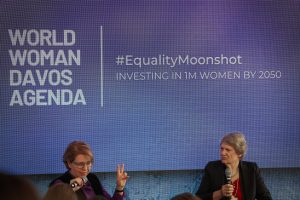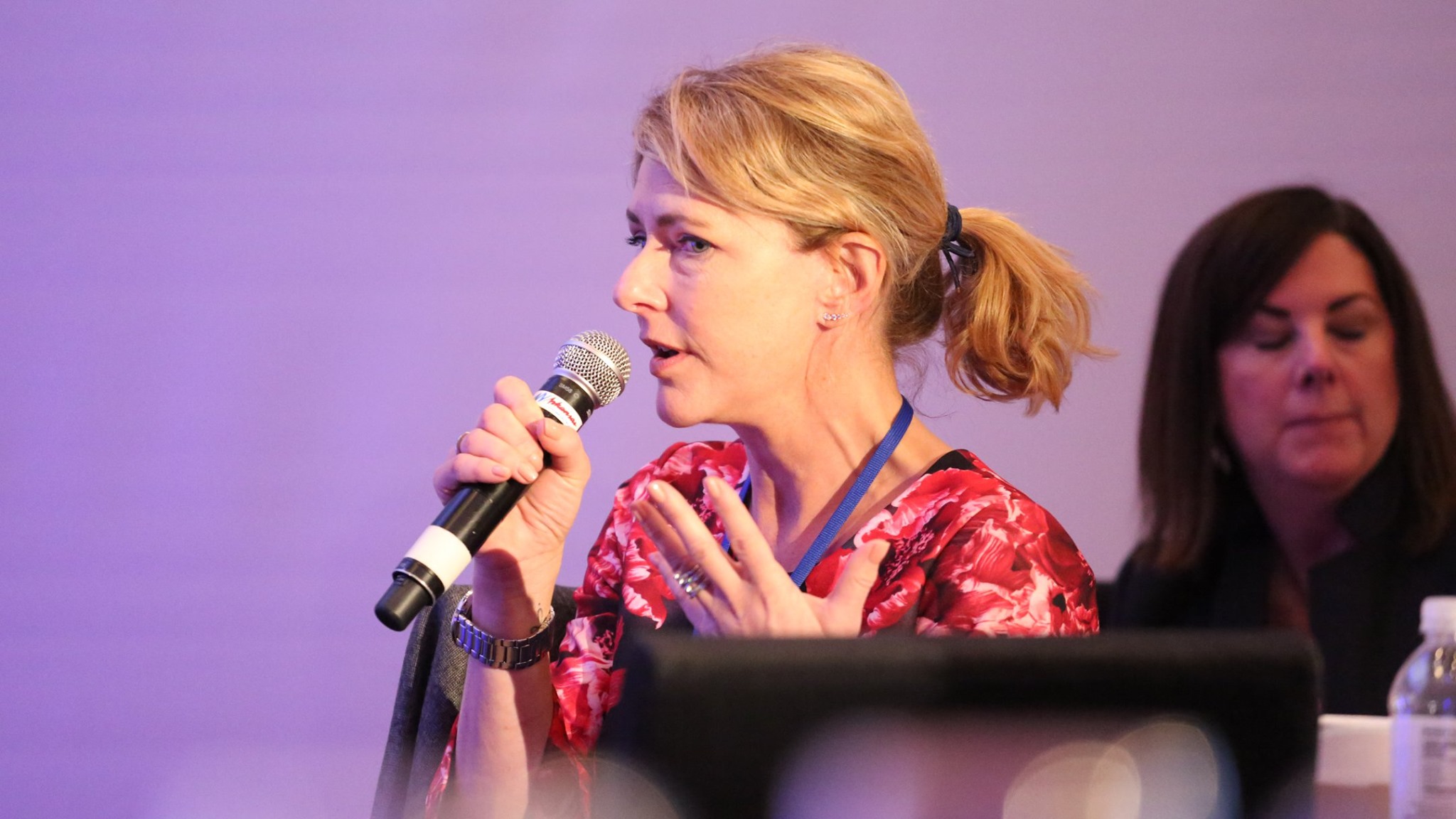 In the ever-changing realm of gender equality, the role of women in politics emerges as a focal point for discussion and action. As we progress through the 21st century, women’s voices in positions of authority resonate louder than ever, advocating for change, advancement, and inclusivity. Women’s involvement in peace and security processes—as peacekeepers, leaders, and members of defense and security sectors—is crucial for global security, stability, and democracy. Research indicates that higher representation of women in parliament generally leads to increased attention to women’s issues. Women’s Political participation is a fundamental requirement not only for gender equality but also for genuine democracy. It enables direct involvement of women in public decision-making and ensures better accountability to women. While increasing the number of women in decision-making roles is essential, it’s equally crucial to implement gender-sensitive governance reforms to enhance the effectiveness of all elected officials in promoting gender equality in public policies and ensuring their execution.
In the ever-changing realm of gender equality, the role of women in politics emerges as a focal point for discussion and action. As we progress through the 21st century, women’s voices in positions of authority resonate louder than ever, advocating for change, advancement, and inclusivity. Women’s involvement in peace and security processes—as peacekeepers, leaders, and members of defense and security sectors—is crucial for global security, stability, and democracy. Research indicates that higher representation of women in parliament generally leads to increased attention to women’s issues. Women’s Political participation is a fundamental requirement not only for gender equality but also for genuine democracy. It enables direct involvement of women in public decision-making and ensures better accountability to women. While increasing the number of women in decision-making roles is essential, it’s equally crucial to implement gender-sensitive governance reforms to enhance the effectiveness of all elected officials in promoting gender equality in public policies and ensuring their execution.
As of January 10, 2024, there are 26 countries where 28 women serve as Heads of State and Government. However, at the current rate, achieving gender equality in the highest positions of power globally is projected to take another 130 years. Only 15 countries have a female head of state, while 16 have a female head of government.

One influential figure in this realm is Prime Minister Helen Clark, whose leadership in New Zealand across three terms set a precedent for women in politics worldwide. In this article, we explore the insights shared by Prime Minister Clark during her discussion on women and power at the Women’s Davos Agenda 2024, in conversation with Aleksandra Karasinska, Editor-in-Chief of Forbes Women Poland, examining the significance of female leadership, encountered challenges, and the way forward for aspiring women leaders.
Unveiling the Power of Female Leadership:
Prime Minister Helen Clark’s journey to political eminence exemplifies the transformative potential of female leadership. In a historically male-dominated landscape, her rise to the pinnacle of power shattered stereotypes and paved the way for future generations of women leaders. As the first woman elected Prime Minister of New Zealand following a general election, Prime Minister Clark’s tenure marked a pivotal moment in the nation’s history, inspiring women worldwide.
Prime Minister Clark’s impact extends beyond her political accomplishments. Throughout her career, she has been a staunch advocate for gender equality, sustainable development, and climate action. From championing progressive policies to amplifying marginalized voices, Prime Minister Clark epitomizes the transformative power of women in positions of authority.
Navigating Challenges and Confronting Backlash:
Despite strides in advancing women’s rights, Prime Minister Clark acknowledges the persistent challenges and backlash women face in politics. The erosion of women’s rights, especially concerning reproductive autonomy, poses a significant concern, with regressive agendas threatening to reverse decades of progress. Prime Minister Clark’s insights underscore the need to safeguard these hard-won liberties and resist efforts to curtail women’s autonomy.
Moreover, the prevalence of online harassment and misogyny presents significant obstacles for women entering politics. Prime Minister Clark’s candid reflections on the vitriol she encounters on social media highlight the harsh reality of navigating male-dominated spaces. Yet, her unwavering resilience inspires aspiring women leaders, emphasizing the importance of perseverance in the face of adversity.
Driving Change and Empowering Future Leaders:
Prime Minister Clark’s legacy is a guiding light for women aspiring to enter politics. Through strategic policymaking and advocacy, women in positions of authority can effect meaningful change across various spheres of governance. Prime Minister Clark’s initiatives in healthcare, education, and gender equality underscore the transformative impact of women’s leadership, showcasing the power of policy to foster a more equitable and inclusive society.
For aspiring women leaders, Prime Minister Clark offers words of encouragement and guidance. Despite their challenges, she urges them to seize opportunities and navigate obstacles with resilience and determination. By building supportive networks and forging alliances, women can confront entrenched biases, challenge the status quo, and pave the way for a brighter future.
Takeaways:
- Women’s political representation remains significantly low, highlighting the urgent need for concerted efforts to promote gender parity in political leadership.
- The backlash against women’s rights underscores the importance of safeguarding hard-won liberties and resisting regressive agendas.
- Despite facing significant challenges, women leaders like Prime Minister Helen Clark demonstrate the transformative power of female leadership in driving positive change.
- Aspiring women leaders are encouraged to persevere, build supportive networks, and seize opportunities to effect meaningful change in their communities and beyond.
Reflecting on Prime Minister Helen Clark’s insights, we are reminded of the profound impact of women in politics. From breaking barriers to driving change, women leaders continue defying expectations and redefining leadership’s contours. As we strive for progress, let us draw inspiration from Prime Minister Clark’s resilience and determination, committing ourselves to empower women in politics. Together, we can build a future where women’s voices are heard, valued, and empowered to lead.
Taking Action:
Advocate for Gender Parity: Support initiatives and campaigns to increase women’s political representation, such as gender quotas and electoral reforms. Encourage political parties and institutions to prioritize gender diversity in candidate selection and leadership positions.
Combat Online Harassment: Take a stand against online harassment and misogyny by advocating for stronger policies and enforcement mechanisms on social media platforms. Support initiatives that provide resources and support for women facing online abuse and discrimination.
Support Women’s Leadership Programs: Invest in programs and initiatives that empower women to enter politics, develop leadership skills, and navigate male-dominated spaces. Provide mentorship, training, and networking opportunities for aspiring women leaders to thrive in their political careers.
Amplify Women’s Voices: Utilize your platform and influence to amplify women’s political voices and elevate their perspectives on key issues. Showcase the achievements and contributions of women leaders and challenge stereotypes and biases that perpetuate gender inequality in the political arena.
The journey towards gender equality in politics is multifaceted and ongoing. While significant progress has been made, there are still substantial challenges to overcome. The insights shared by Prime Minister Helen Clark serve as a reminder of the importance of continued advocacy, resilience, and solidarity in advancing the role of women in politics. By addressing systemic barriers, combating discrimination, and promoting inclusive policies, we can create a political landscape where women’s voices are heard and actively contribute to shaping the future. As we reflect on the transformative power of female leadership, let us remain steadfast in our commitment to empowering women in politics and building a more equitable and inclusive society for all.

















Здравствуйте!
Пошаговая инструкция по безопасной покупке диплома о высшем образовании
kabtaferplus.com/купить-диплом-советы-и-рекомендации
Рады оказаться полезными!.
Vitazen Keto Gummies I do not even understand how I ended up here, but I assumed this publish used to be great
Кооператив для военных
Как пайщики — участники СВО относятся к событиям вокруг «Бест Вей»
ПК Бествей
Потребительский кооператив «Бест Вей» оказался затронут уголовным делом, касающимся в основном иностранной инвесткомпании «Гермес», которое сейчас рассматривается Приморским районным судом Санкт-Петербурга. Более двух лет более 3,5 млрд рублей на счетах кооператива почти непрерывно арестованы по ходатайству сначала ГСУ ГУ МВД по Санкт-Петербургу, а затем Прокуратуры Санкт-Петербурга: пайщики не имеют возможности ни приобрести недвижимость, ни вернуть средства.
По данным совета потребительского кооператива «Бест Вей», в числе его пайщиков, страдающих от блокировки средств, тысячи военнослужащих, в том числе сотни участников СВО, часть из которых успела приобрести квартиру, часть собирает или собрала первоначальный взнос, а часть — планировала вступить в кооператив. «СП» пообщалась с некоторыми из них и их родственниками, чтобы узнать отношение к «Бест Вей» и событиям вокруг кооператива.
«К кооперативу отношение очень хорошее»
Александр Голдман на СВО с мая 2022 года как доброволец, три ранения. Пришел на СВО рядовым, сейчас — начальник штаба батальона. Был пайщиком кооператива, сейчас пайщик — его мама.
«С помощью кооператива в 2019 году приобретена двухкомнатная квартира во Владивостоке, в которой проживает мама, — рассказывает он. — Расплачиваемся за нее, в ближайшие месяцы намерены погасить задолженность перед кооперативом и оформить квартиру в собственность. К кооперативу отношение очень хорошее, полностью его поддерживаю — он дает возможность без больших переплат приобрести недвижимость. К действиям в отношении кооператива отношусь отрицательно, так как „Бест Вей“ — единственная возможность приобрести жилье в рассрочку».
«Происходящее вокруг кооператива вызывает шок»
Гвардии рядовой Глушков Иван Васильевич — пайщик кооператива из Челябинской области. Танкист, мобилизованный, проходил службу в 15-й отдельной гвардейской мотострелковой Александрийской бригаде 2-й гвардейской общевойсковой армии ЦВО. Погиб 11 октября 2023 года.
Рассказывает его вдова Татьяна Неручева:
«Мы внесли первоначальный паевый взнос и во второй половине 2021 года встали в очередь на приобретение квартиры в Челябинске, когда начались события вокруг кооператива — была заблокирована его возможность приобретать недвижимость и заблокированы его счета. Наша очередь должна была подойти примерно через год. Мы заявили для приобретения небольшую квартиру, но планировали при покупке увеличить ее стоимость до 3 млн и купить двухкомнатную квартиру — с увеличением первоначального паевого взноса: уставом кооператива это позволяется, а затем переехать из Коркино в Челябинск. Сейчас 3 млн хватит только на небольшую квартиру-студию метров 25, то есть мы понесли материальный ущерб из-за блокирования деятельности кооператива, так как лишены были возможности приобрести квартиру, на которую собрали первоначальный паевый взнос. Работа кооператива заблокирована, счета арестованы уже более двух лет. В наследование пая я только вступаю, так как муж очень долго считался пропавшим без вести — долго шла экспертиза, и свидетельство о смерти мы получили только 18 июня этого года».
Татьяна — юрист: «Как у юриста у меня происходящее вокруг кооператива вызывает шок, и любой непредвзятый юрист вам скажет то же самое». «Кооператив, — подчеркивает она, — абсолютно прозрачен, он полностью соответствует законодательству о кооперации — что и подтверждалось многократно государственными органами и судами. Если бы мы с мужем не были уверены, что все прозрачно и законно, мы бы не вкладывали в него деньги. Мы не подавали заявление о выходе из кооператива. Я, несмотря ни на что, жду счастливого завершения рукотворного кризиса вокруг кооператива. Для меня это еще и память о муже — он продал долю в квартире, которая ему принадлежала, чтобы вложиться в кооператив. Кроме того, мне хочется понять — до какого маразма может дойти ситуация у нас в государстве в плане незаконных действий в отношении организации, которая по тем или иным причинам не понравилась каким-то чиновникам?».
«Рассчитываю, что ситуация закончится благополучно»
Сергей Логинов, рядовой, мобилизованный, представлен к награде «Честь и доблесть».
«Пять лет назад я стал пайщиком кооператива, участвовал в накопительной программе, планировал прибрести однокомнатную квартиру в Самарской области. Уже нужно было подбирать объект недвижимости и вставать в очередь на покупку, как работа кооператива была заблокирована по инициативе правоохранительных органов, и это продолжается уже более двух лет. По-прежнему надеюсь получить квартиру и рассчитываю, что ситуация закончится благополучно. Поддерживаю кооператив».
«В кооперативе минимум переплат — несопоставимо с ипотекой»
Егор Ивков, офицер флота, дирижер военного оркестра, пайщик кооператива с 2019 года.
«Я нахожусь в накопительной программе — планировал покупку квартиры в Санкт-Петербурге. До постановки в очередь на покупку дело не дошло, но сумма внесена серьезная — и на два года все зависло. Есть друзья-военнослужащие, которые также являются пайщиками и тоже накапливали деньги на первоначальный паевый взнос — они, как и я, не могут ни продолжать накапливать, ни получить деньги обратно, потому что счета арестованы. Отношение наше к ситуации, создавшейся вокруг кооператива, крайне негативное».
«Кооператив поддерживаю, — говорит пайщик. — Моя сестра живет в квартире, приобретенной с помощью „Бест Вей“ — у нее многодетная семья, сейчас кооперативная квартира переходит в ее собственность. Минимум переплат — несопоставимо с ипотекой. Надеюсь, что ситуация с арестом счетов разрешится в ближайшее время».